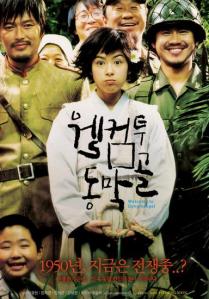
Being an expat is fun. Being an outsider is tough.
It’s been ages since my last post. I lived in Europe for a few years, and returned several years ago to the same town in Korea, where I’m now raising a mixed-culture family. Now that we’ve got that out of the way… Let’s get down to brass tacks: cultural barriers, making friends (?) and “being foreign” in Korea. At the beach this weekend, I took a picture of the barbed wire fencing, which stretches its way along most of the country’s coastline — a big fence to keep some people out and make others feel safe while keeping them penned in together. It seemed like an apt metaphor for cultural barriers.
Exactly a decade ago, I read that expats living in Korea will always be viewed as foreigners. As soon as I read it, I wished I hadn’t. I didn’t want it to color my experience in Korea. But many years into living in Korea, I can’t deny its truth. I know two women who have lived here for decades, speak fluent local dialect, married Korean men and have Korean passports. I attended a speech some years back given by one of the women on notable female figures in Korean history. A couple members of the local press approached nervously, not knowing that she was the keynote speaker, and asked her politely what brought her as a foreigner to the event. Despite actually being Korean, she will always be a foreigner.


